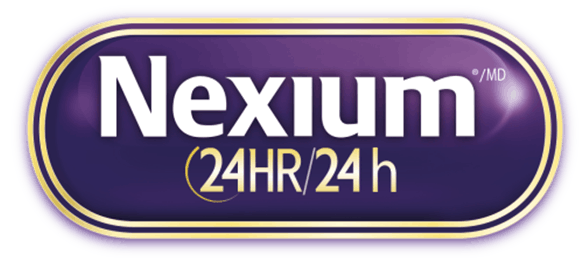How to Treat Occasional Heartburn
If you’re one of the lucky ones who only gets a bout of heartburn after a big plate of spicy curry, your heartburn should go away within a couple of hours.
In this instance, antacid medication is a great treatment option. Antacids like TUMS help quickly neutralize the stomach acid that rises in your esophagus to soothe the burning pain of heartburn.
Other possible fixes for treating occasional heartburn are to remain upright for a few hours after eating (don’t lie down), drink water to flush your esophagus of stomach acid, or mix a teaspoon of sodium bicarbonate (baking soda) into a glass of water and drink it – this acts as a makeshift antacid.
What Is GERD?
People with frequent heartburn should ask their doctor about GERD. Gastroesophageal reflux disease is a condition where the lower esophageal sphincter (LES) valve that connects the esophagus to the stomach doesn’t work properly. It should open only to let food through and then shut tight again.
In people with GERD, the sphincter stays open when it shouldn’t, allowing gastric acid and other stomach contents to frequently leak back up the esophagus and the throat, causing the burning sensation known as heartburn.
How is GERD Treated?
Depending on the severity and frequency of your acid reflux, there are several options to treat GERD that can be decided on between you and your doctor.
Below are some of the common GERD treatment options:
- Lifestyle changes: your doctor will likely recommend lifestyle changes you should make to reduce the frequency of your heartburn alongside any GERD medication. This includes losing weight if you’re overweight, stopping smoking if you smoke cigarettes, and removing acidic or heartburn-causing foods from your diet.
- Proton pump inhibitors (PPIs): PPIs reduce the amount of stomach acid made to help ease the frequency of heartburn. They work by inhibiting “proton pump” cells in the stomach from producing so much gastric acid, reducing the amount that can reflux into the esophagus to cause heartburn. In general, PPIs are recommended before H2 blockers as they’re more effective at reducing stomach acid production.
- H2 blockers: histamine H2-receptor antagonists (commonly known as H2 blockers) also reduce the acid made in the stomach, but in a different way. The chemical histamine in our bodies stimulates the gastric acid-making cells in the stomach to produce acid. H2 blockers prevent those cells from responding to histamine.
- Procedures & surgery: if lifestyle changes and medications don’t help reduce your heartburn, your doctor may recommend a gastroscopy (a tube with a camera on the end inserted down the esophagus) so they can look at your LES and determine what the problem is. From there, if needed, a laparoscopic fundoplication can be discussed. This is where a faulty LES valve is operated on via keyhole surgery.
Using Nexium 24HR for Frequent Heartburn
Nexium 24HR is an over-the-counter PPI intended for people who experience frequent heartburn. Take one Nexium 24HR capsule every morning with water for 14 days before eating to help treat frequent heartburn. Read the packaging, dosage information, and instructions thoroughly before starting use.
If your symptoms persist after taking Nexium 24HR for 14 days, contact your doctor who can advise you on what to do next.

